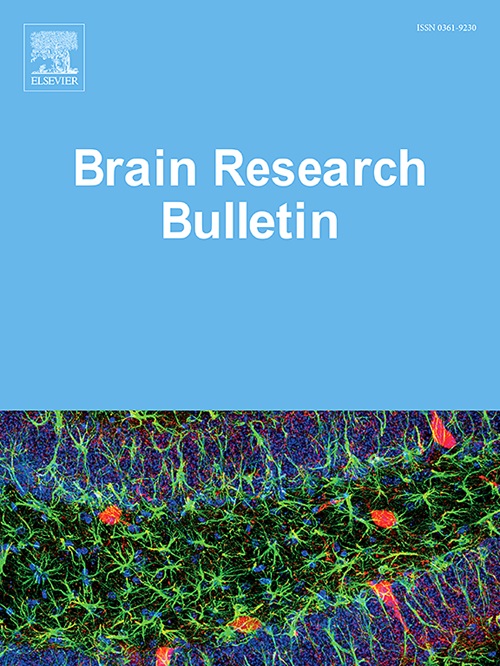Abnormal glymphatic system in patients with autoimmune encephalitis: Relationship with cognitive performance
IF 3.5
3区 医学
Q2 NEUROSCIENCES
引用次数: 0
Abstract
Objectives
We aimed to explore the impact of glymphatic function in patients diagnosed with autoimmune encephalitis (AE).
Methods
In this prospective longitudinal study, patients were recruited from Xijing Hospital between June 2020 and January 2024. Glymphatic function was evaluated using diffusion tensor imaging analysis along the perivascular space (DTI-ALPS). Cognitive impairment was defined as a Montreal Cognitive Assessment (MoCA) score below 26 at the 12-month follow-up.
Results
A total of 115 individuals were enrolled, including 85 patients with AE and 30 age- and sex-matched healthy controls (HCs). After correcting for age and sex, patients with AE had a significantly lower baseline ALPS index compared to HCs (1.173, 95 % CI [1.135, 1.210] vs. 1.456, 95 % CI [1.371, 1.541]; P < 0.001). The baseline ALPS index was correlated with cognitive performance, including a positive correlation with the Mini-Mental State Examination (MMSE) score (r = 0.568, P < 0.001) and a positive correlation with the MoCA score (r = 0.645, P < 0.001). In the longitudinal study, the ALPS index gradually increased over the follow-up period (P < 0.001), and a low level of the baseline ALPS index was associated with a higher risk of long-term cognitive impairment (HR [95 % CI] = 1.70 [1.12–2.58], P = 0.013).
Conclusion
The glymphatic system is impaired in AE patients. A decreased DTI-ALPS index is associated with a decline in cognitive performance. Additionally, a low baseline ALPS index may predict an increased risk of long-term cognitive impairment in AE patients.
求助全文
约1分钟内获得全文
求助全文
来源期刊

Brain Research Bulletin
医学-神经科学
CiteScore
6.90
自引率
2.60%
发文量
253
审稿时长
67 days
期刊介绍:
The Brain Research Bulletin (BRB) aims to publish novel work that advances our knowledge of molecular and cellular mechanisms that underlie neural network properties associated with behavior, cognition and other brain functions during neurodevelopment and in the adult. Although clinical research is out of the Journal''s scope, the BRB also aims to publish translation research that provides insight into biological mechanisms and processes associated with neurodegeneration mechanisms, neurological diseases and neuropsychiatric disorders. The Journal is especially interested in research using novel methodologies, such as optogenetics, multielectrode array recordings and life imaging in wild-type and genetically-modified animal models, with the goal to advance our understanding of how neurons, glia and networks function in vivo.
 求助内容:
求助内容: 应助结果提醒方式:
应助结果提醒方式:


